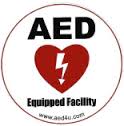The Key Person Role
The child’s key person is a valuable resource in relation to the child’s care, learning and development. Staff are present to ensure that children are learning effectively and are the tool to enable children to be:-
• Playing and Exploring – engaging in activities.
• Active Learning – motivating.
• Creating and Thinking Critically – extending how children think.
Staff within each room will at all times share responsibilities, jobs and child interaction. The aim of the key person system within Diggle Day Nursery and Education Centre is to help the individual child to play, achieve and enjoy their time at nursery.
The child’s key person will be responsible for observing, assessing and planning activities for the child’s individual needs, this will then incorporate into the child’s ‘Learning Journey’ which can be looked at and discussed as and when required. The key person is also responsible for carrying out relevant documentation to track the child's development and plan accordingly from this, this includes the two year check which is shared with the parents/carers.
Parents have the chance to speak to their child’s key person on a daily basis when dropping off and picking up your child as well as attending parents evenings twice a year.
If you ever have any concerns or problems about your child’s progress, behaviour or time spent in nursery then please don’t hesitate to speak to your child’s key person, room supervisor or nursery manager.
Early Years Foundation Stage
The Early Years Foundation Stage Framework (EYFS) sets out the learning and development stages for children as they grow from birth to five years.
The EYFS focuses on how children learn and develop through playing, exploring, being active, creative and being asked questions to help their thinking. The children will also be working towards three prime areas of development as well as four specific areas.
The three prime areas are as follows:-
• Personal, Social and Emotional Development
• Communication and Language
• Physical Development
The prime areas are fundamental, work together, and move through to support development in all other areas.
The four specific areas include essential skills and knowledge for children to participate successfully in society and are as follows:-
• Literacy
• Mathematics
• Understanding the World
• Expressive Arts and Design





